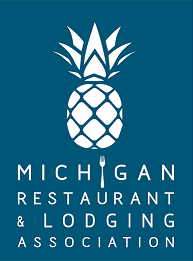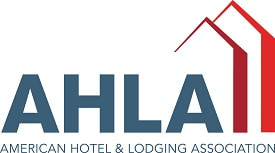Legislative Victories |
For a list of all historic accomplishments, click here
|
Below highlights a number of key legislative victories where the MRLA served as an integral part of either completing or preventing. While not a complete list, it demonstrates the vastness of issues that directly impact the MRLA membership. For comments or questions, please contact John McNamara, V.P Government Affairs, [email protected]
- Public Act 119 (HB 4437): Secured $10 million in funding for the Hospitality Training Institute of Michigan (HTIM)
- Public Act 4 (HB 4001): Expands Michigan's Earned Income Tax Credit (Sponsor: Rep. Angela Witwer D-Grand Ledge)
- Public Act 6 (SB 4): Expands Michigan's Elliot Larsen Civil Rights Act to include sexual orientation and gender identity or expression (Sponsor: Sen. Jeremy Moss D-Southfield)
- Public Act 95 (SB 141): Removal of sunset on 'Cocktails to Go' (Sponsor: Sen. Mallory McMorrow D - Royal Oak)
- Public Act 144 (SB 845): Secured $2.5 million in funding for Hospitality Tourism Management/ProStart programs (Sponsor: Sen. Wayne Schmidt R-Traverse City)
- Public Act 27 (HB 5090): Removal of the sunset on 'Social Zones' (Sponsor: Rep. T.C. Clements R-Temperance)
- Public Act 123 (SB 690): Fiscal Year 2020 budget supplemental that established a $2.5 million employee relief fund and an increased discount rate of 23% with the Michigan Liquor Control Commission rate for on-premises licensees for one year. (Sponsor: Sen. Jim Stamas R-Midland)
- Public Act 124 (HB 5781): Allows for the creation of social zones in partnership with local unites of government. (Sponsor: Rep. Michael Webber R-Rochester Hills)
- Public Act 125 (HB 5811): Allowed bars and restaurants to ability to offer beer, wine and mixed-drinks to go including delivery. (Sponsor: Rep. Sarah Anthony D-Lansing)
- Public Act 166 (HB 5396): Restoration in funding ($15 million) for the Pure Michigan Campaign. After previous years funding had been vetoed. (Sponsor: Rep. Shane Hernandez R-Port Huron)
- Public Act 296 (House Bill 5770): Require that third-party delivery companies such as Uber Eats or Grub Hub to get the permission of a restaurant prior to listing them on their mobile app or website. Michigan was the first state to enact this regulation at the state level. (Sponsor: Rep. Roger Hauck R-Mt. Pleasant)
- Senate Bill 748: Fiscal Year 2020 Budget supplemental that provides $55 million in emergency grants for small business and $45 million for impacted employees. (Sponsor: Sen. Jim Stamas R-Midland)
- Public Act 132 (Senate Bill 85): Provided $409 million for the Growing Michigan Grant Program (Sponsor: Sen. Ken Horn R-Frankenmuth)
Notable Vetoes - Senate Bills 935-937: Allowed for sales and withholding tax payments to be paid in installments thru November of 2020. (Sponsor: Sen. Curt Vanderwall R-Ludington)
- House Bill 5761 and House Bill 5810: Allowed for a six-month penalty and interest free extension for individuals and business to make their property award payments. (Sponsor: Rep. James Lower R-Greenville)
- Senate Bill 1253: Would limit the ability for the Department of Health and Human Services to extend an order beyond 28 days without the permission of the Michigan Legislature. (Sponsor: Se. Lana Theis R-Brighton)
- Senate Bill 943: Would relieve the burden of unpaid summer 2020 property tax fees, penalties, and interest. (Sponsor: Sen. Pete McGregor R-Rockford)
Federal Government Legislative Summary
- Families First Coronavirus Response Act (FFRCA): Key provisions include paid family/medical leave, paid sick leave, insurance coverage for COVID-19 testing and the first round of federal emergency grants for state unemployment insurance.
- Coronavirus Aid, Relief, and Economic Security Act (CARES): The second major federal relief package for the COVID-19 pandemic, the $2 trillion CARES Act includes direct payments to American taxpayers, extended and increased unemployment benefits, a new unemployment assistance program for self-employed workers, small business relief, and more.
- Restaurant Recovery Fund (RRF): The singular industry relief program from the Federal government. The initial investment was $28.6 billion with a three-week priority for female owned, veteran owned and businesses in economically disadvantaged areas. Unfortunately, demand greatly exceeded supply and approximately 175,000 applicants did not receive funding.
Historic Legislative Victories
|
Prevented Soda and Meals Tax at the Local Level
The MRLA advocated on behalf of its members to prevent a “Soda Tax” and “Meals Tax” from occurring at the local level. Being demonstrated across the country, cities that have imposed both a “Soda Tax” and “Meals Tax” have placed considerable strain on the restaurant and foodservice community. Due to these onerous mandates, restaurant owners have been forced to cut jobs and raise prices. With the MRLA continued efforts in a broad coalition, the restaurant and foodservice community is now protected from these taxes at the local level. Prevented the Loss of Thousands of Liquor Licenses by Michigan’s 500-Foot Rule
By amending Michigan’s 500-foot rule in the Michigan Liquor Code, the MRLA helped protect thousands of liquor licenses that have been approved by the commission over the past 30 years that are currently within the 500-foot measurement. If not enacted, thousands of liquor licenses could have been voided and be forced to close their businesses. Expanded the use of Conditional Liquor Licenses
The MRLA was successful in expanding the use of Conditional Liquor Licenses beyond same location transfer. With legislation championed by the MRA, an applicant is now able to apply for and use a Conditional Liquor License when seeking to transfer that license to a new location. Protecting Joint Employer Status in Michigan
The MRLA led the charge to help protect the traditional franchisee-franchisor model within Michigan. The legislation clarified that a franchisee is the sole employer of the employees it hires, unless the franchisor has “direct and immediate” control over employment matters. The multi-bill package was passed to help alleviate stress caused by the 2015 National Labor Relations Board on Joint Employment, under which, two business entities can be considered a “Joint Employer” if one entity had “indirect control” over another entity’s employees. |
Defeated a 250% Beer Tax Increase:
The MRLA helped lead the charge to ultimately prevent legislation that would have increased Michigan’s Beer Tax by over 250%. Currently, the beer tax in Michigan is already the highest in the Great Lakes region (Indiana, Illinois, Ohio and Wisconsin). Increasing the beer tax would have destroyed each and every retailer across Michigan. Continued Funding for Pure Michigan:
For the past few years, the MRLA has led the charge to ensure that the Michigan Legislature continues to fund the “Pure Michigan” campaign. With over 20% of revenue directly tied to tourism spending, the restaurant community is reliant on a robust tourism industry. This year, members of the state legislature attempted to defund the Pure Michigan campaign. Due to the efforts of the MRLA, the campaign is now funded at $34 Million in the current budget that was just sent to Governor Snyder. Protected the Restaurant and Foodservice Industry from Burdensome Mandates by Local Units of Government
Passed legislation that provided employers additional security and certainty by prohibiting local units of government from adopting laws related to employee wages or benefits, such as local leave mandates, local wage or fringe benefit mandates, local scheduling or shift mandates and local minimum or prevailing wage ordinances. |
|
Preventing a Paid Sick Leave Ballot Initiative:
In 2016 the MRLA successfully prevented a 2016 ballot initiative that would have mandated employers provide their employees (including part-time) with one hour of sick time for every 30 hours worked. Employees of larger businesses would be able to use up to 72 hours of paid sick time each year; employees of small businesses would normally be restricted to up to 40 hours. Bagged the Ban:
The MRLA successfully led a coalition that passed legislation prohibiting a local unit of government from preventing or taxing a business from using “auxiliary containers” at their locations. The legislation specifically details that an “Auxiliary Container” includes a bag, cup, bottle, or other packaging - that is made of cloth, paper, plastic, cardboard, corrugated material, aluminum, or glass. The legislation also prevented a patchwork system of government mandates on businesses across Michigan. Prevented the Repeal of Debit-Swipe Fees:
The MRLA successfully prevented the repeal of the Debit-Swipe Fee Reforms that were enacted in 2010. Before 2010, a debit-swipe fee cost a retailer on average 44 cents per transaction. With the reforms passed, that fee was lowered to an average of 27 cents per transaction. There were serious attempts made to repeal this provision, and by working with the NRA and our members, the MRLA was able to help prevent this from passing into law. |
Preventing Businesses from Becoming the New “Tax Collector”
Defeated two legislative proposals that would have shifted the responsibility of collecting and reporting City Income Taxes from local units of government to private employers. Allowing Retail Liquor Licenses to Promote With Social Media
Passed legislation that now allows restaurants the opportunity to use unpaid social media advertising for certain liquor brand promotions and events at their locations. Securing MRA ProStart Funding
To help develop and expand Workforce & Talent Development opportunities within the foodservice and culinary profession, the MRLA remains committed to advocate for the continual support for the MRLA Educational Foundation ProStart Program. Successful in 2016 and 2017, the MRLA continues to work with both House and Senate Leadership to secure state funding for the ProStart Program to expand the program, provide additional tools for mentors and Team Leaders and provide basic supplies for ProStart competitors. Retention of Tip-Credit:
The MRLA prevented a number of ballot initiatives seeking to eliminate the tipped minimum wage and increase the minimum wage to $10.10 per hour. Led by the MRLA, a broad-based coalition was constructed to defeat the job-killing initiative in the 2014 election cycle. Through a proactive approach, the MRLA was able to have a legislative proposal signed by Governor Snyder and was able to prevent the ballot proposal from moving forward. Ultimately, the “tip credit” was retained which has become critical to the success of the restaurant and hospitality industry. |




